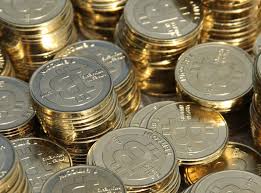Bitcoin has had a pretty short history, it’s impossible to answer outright if Bitcoin a good investment. Bitcoin has proven to be stable, robust, and so far trustworthy. Part of that stability and perception depends on outlets like Mt Gox Coinbase, that allow you to convert Bitcoin for $US dollars and also $US dollars to Bitcoin. One time a Bitcoin security hole was exploited, but the Bitcoin community gracefully returned the system to normal while fixing the bug and with no Bitcoins lost or unaccounted for in the process.
Nefarious institutions like Silk road were closed which threatened the stability, exchange rate, and image of Bitcoin. However, the exchange rate recovered quickly after the news of Silk road, indicating Bitcoin wasn’t tied to just one market or business.
You can get $10 in free BTC crypto by joining Coinbase now, or continue reading below.
This if anything, has helped Bitcoin’s image and shown it’s more than criminal underground currency.
What about the fall of Mt Gox?
When Mt Gox collapsed in early 2014, it really shook the Bitcoin community. Many innocent people lost thousands, and all the typical rumors resurfaced around how Bitcoin is a fad and just a flash in the pan. The truth is, Mt Gox failed because it was a poorly run business, not because of a flaws in Bitcoin. There will be many of these stories in history of Bitcoin. MCI Worldcom failed and many lost their nest eggs in that bankruptcy, but it didn’t signal the imminent collapse of telecom industry. The difference here is it’s highly unlikely anything will be salvaged from Mt Gox.
But is Bitcoin a good investment?
I am not a professional investor or speculator, so take my opinion with a grain of salt. I do have an MBA and understand common accepted micro and macro economic principles.
When you speculate on Bitcoin, I believe there are a few important questions to ask:
1. How long will it be around?
Let’s assume it will continue indefinitely and will continue to be stable and reliable.
2. Will Bitcoin continue to grow in acceptance and use?
Let’s assume it will and it will become easier to use Bitcoin in the real world. Let’s assume that in the the future you will be able to exchange Bitcoin against local currency quickly and easily. You might even be able to pay in Bitcoin on Amazon, eBay, or other retailers.
When you make the assumptions above, Bitcoin looks like a good long term investment to make. Here’s why, as time continues economies expand. The US treasury progressively prints more $US dollars to keep up with demand and it always seems we have constant inflation. You can test this because when you look at how much something was worth 50 years ago, a car for example, you always adjust for inflation. Bitcoin will continue to expand like other currencies, but Bitcoin is expanding slower than the $US dollar at a rate which is also decelerating. Eventually in 2140, no more Bitcoins will be created. Since no more Bitcoins will be created, it’s actually a hedge against $US dollar inflation – assuming Bitcoin continues in adoption and acceptance.
Aside from Bitcoin, why is there always inflation in our local currency but no inflation in Bitcoin?
If there wasn’t at least a little bit of inflation, it would mean equilibrium or deflation. Under these circumstances, without considering interest, a dollar held is worth more tomorrow if not spent today. That causes the flow of money in a healthy economy to slow and stagnate. Modern economic policy won’t allow a continued period of contraction or deflation as we observe from the Federal Reserve monetary policy. The Bitcoin money supply is software driven and predictable, it’s not driven by a changing monetary policy. About half of all the Bitcoins that will exist are currently in circulation, the rest have yet to be “mined” or released. The release rate will get slower and slower, but eventually run out around 2140. When you compare the $US dollar expansion rate and Bitcoin’s, and consider they need to be exchanged for one another back and forth, Bitcoin can actually be a hedge against $US dollar inflation.
If you read the news about Bitcoin, it’s expanding. This week, Canada added new Bitcoin enabled ATMs. Also this week, there was some sensationalism around Bitcoin as a young man bought a flat with his forgotten Bitcoin windfall. As I noted before, companies are being created and focusing exclusively on the Bitcoin ecosystem for profit. All these factors support the assumption that yes Bitcoin will continue to expand from a consumer acceptance standpoint and there are enough players with “skin in the Bitcoin game” to proactively ensure Bitcoin expands and thrives.
What about US law, could Bitcoin become illegal?
It’s really tough to say but so far the government hasn’t positioned against Bitcoin. If Bitcoin continues to expand, exchanges will need to become US compliant. The government will want to know more about sales tax information and any interest or capital gains you realize, just like the laws around other investment stipulates.
To summarize, if you believe Bitcoin will continue in growth, acceptance, and that methods of exchanging Bitcoin will continue to improve, then it stands to reason Bitcoin will appreciate against the $US dollar or be a hedge against inflation the same way gold is. That’s because the new Bitcoin supply is controlled by a computer program and is now growing slower than the new $US dollar supply rate, which grows due to inflation and other factors. In addition, eventually the new Bitcoin supply will completely cease and other Bitcoins will always get inadvertently lost – increasing scarcity. But at the same time, you never know when a new supply could suddenly flood the market. Bitcoin has a short history, but the foundation has been established and it’s solid. Current trends also indicate a positive long term future. The short term will be volatile, but will stabilize over time. In my opinion, all these factors indicate Bitcoin is a good LONG term investment.
– Or –



